No Judgments Read online
Dedication
In memory of Kady Elkins, Marilyn Furman,
and Maureen Venti, fierce lovers of books and
nature, and all taken too soon from this world
Contents
Cover
Title Page
Dedication
Chapter One
Chapter Two
Chapter Three
Chapter Four
Chapter Five
Chapter Six
Chapter Seven
Chapter Eight
Chapter Nine
Chapter Ten
Chapter Eleven
Chapter Twelve
Chapter Thirteen
Chapter Fourteen
Chapter Fifteen
Chapter Sixteen
Chapter Seventeen
Chapter Eighteen
Chapter Nineteen
Chapter Twenty
Chapter Twenty-One
Chapter Twenty-Two
Chapter Twenty-Three
Chapter Twenty-Four
Chapter Twenty-Five
Chapter Twenty-Six
Chapter Twenty-Seven
Chapter Twenty-Eight
Chapter Twenty-Nine
Chapter Thirty
Chapter Thirty-One
Chapter Thirty-Two
Chapter Thirty-Three
Chapter Thirty-Four
Epilogue
Acknowledgments
P.S. Insights, Interviews & More . . .*
About the Author
Read On
Praise
Also by Meg Cabot
Copyright
About the Publisher
Chapter One
Time: 8:18 A.M.
Temperature: 82ºF
Wind Speed: 6 MPH
Wind Gust: 0 MPH
Precipitation: 0.0 in.
The hurricane was a thousand miles offshore when my ex-boyfriend called to offer me a ride to safety in his private jet.
“No, thanks,” I said, cradling my phone against my shoulder as I wiped a jelly smear off the Formica counter. “That’s really nice of you. But I’m not going anywhere.”
“Sabrina,” Caleb said. “There’s a Category Five hurricane headed straight for you.”
“It’s not headed straight for me. It’s headed for Miami.”
“Little Bridge Island is only a hundred and fifty miles south of Miami.” Caleb sounded exasperated. “The storm could change course at any time. That’s why they call the hurricane track the cone of uncertainty.”
He wasn’t telling me anything I didn’t already know. But it was typical of Caleb to feel it necessary to explain the weather to me.
“Thanks for your concern,” I said coolly. “But I’ll take my chances.”
“Take your chances of dying? Do you really hate me that much?”
This was a good question. Caleb Foley had had his good points: like me, he loved a good painting. His family owned one of the largest private collections of nineteenth-century Impressionist works in North America.
He’d also been great in bed, always waiting politely to orgasm until after I did.
But when I’d needed him most—which was definitely not now—what had he done?
Ghosted.
And now he thought he could make it up to me with a free ride in his Gulfstream just because a hurricane might sideswipe the little island to which I’d fled in order to recover from my heartbreak?
Sorry. Too little, too late.
“It’s nice of you to offer.” I ignored his question. “But like I said, I’m not going anywhere.”
I thought of telling him the real reason why—Gary, with whom my life had become inextricably tied, but who was in no shape to travel at the moment.
But what would be the point? I knew what Caleb would say about Gary. He wouldn’t understand.
It felt a little weird keeping something that meant so much to me from this person with whom I’d once shared every little thing in my life.
But it also felt right.
“Besides,” I added, instead, “no one here is evacuating.”
It was true. Instead of panicking and running around, throwing all of their stuff into the backs of their cars the way I always imagined people would when a hurricane was in the vicinity, the residents of Little Bridge Island, population 4,700, seemed to be taking the news in stride. The café where I worked was packed with the usual breakfast crowd, and though a lot of people were talking about the storm, no one seemed alarmed, only vaguely irritated. . . .
Like Drew Hartwell, whom I could hear next to me informing someone over the phone that he wouldn’t be replacing the hundred-year-old window sash they’d hired him to restore anytime soon.
“Because there’s a storm on the way,” Drew said, sounding a little testy as he dabbed more hot sauce onto his Spanish omelet, “and there’s no way the glazing’s going to dry before it gets here. That’s why. If you want an inch of rainwater all over your bathroom floor, that’s your business, but personally, I’d wait until it passes.”
Normally I don’t make a habit of eavesdropping on my customers’ conversations, but then normally Drew Hartwell didn’t use his cell phone in the café. He was good about following the rules that Ed, the Mermaid’s manager slash owner, had listed by the cash register:
NO SHOES, NO SHIRT, NO PROBLEM.
USE YOUR CELL PHONE? GET OUT.
One person who isn’t so good at following the rules? Me. The last one, anyway.
“Beckham!” Ed bellowed at me from behind the counter. I whipped around and saw him glaring at me. He jerked a thumb at my cell phone, then the glass side door. “Take it outside if it’s that important.” His irritated gaze fell on Drew, who happened to be his nephew, but whom he still treated like any other customer. “You, too.”
Drew held up a calloused palm, nodding as he slid off his orange vinyl counter stool and headed toward the door, his phone still clutched to his chin. “Look,” he said to whoever was on the other end of his call. “I get it. But you’re going to have the window boarded up anyway. So it’s not going to make any—”
The rest of his conversation was lost as he stepped outside.
Sorry, I mouthed to Ed. Then, to Caleb, I said quickly, “Listen, I’m at work. I never should have picked up in the first place. I only did because . . . because . . .”
Why had I picked up, especially since Caleb and I hadn’t spoken in months? Maybe because it was eight o’clock in the morning, and he never called this early. I’d assumed it was an emergency, only not an emergency concerning him.
“Look,” I said. “If that’s all you wanted, I’ll talk to you later, okay?” As in, never.
“No, Sabrina. I’ve got to talk to you now. The thing is, your mother—”
I knew it. My pulse quickened. “What about her? Is there something wrong?”
“She’s fine. But she’s the one who’s been bugging me to phone, since you won’t pick up when she calls.”
My heartbeat slowed. Of course. I should have known. Caleb would never have called, let alone volunteered to fly fifteen hundred miles to get me of his own accord . . . not after the way we’d ended things. Or not we, exactly, considering the fact that I was the one who’d packed up my things, handed my keys to his doorman, and left, making me, technically, the one who had ghosted.
But not really. What else could I have done? What kind of relationship had the two of us even had? Not one I’d wanted anything to do with anymore.
Now I was heading for the door again—the Mermaid’s side door. A rush of humid, saltwater-scented air greeted me as I stepped out onto the sidewalk, ignoring the glare from Ed as well as the curious looks my fellow servers, Angela and Nevaeh, threw me. Neither of them could imagine what was
so important that I’d dare take a call during the morning rush. I hardly ever got calls anyway, so this was a first.
A first that was probably going to get me fired.
“Caleb, look—”
“She’s really worried about you, Sabrina. We all are.”
It was all I could do to keep from bursting out laughing.
“You know your mom pals around with all those meteorologists from the station,” Caleb went on. “She says they tell her this one is a real monster. If there were such a thing as a Category Six, this would be it. She says—”
“Tell my mom I’m fine,” I interrupted, aware that Drew Hartwell was standing only a few feet away from me, his own cell clutched to his ear, having a not dissimilar conversation. I could hear him telling whoever was on the other end of the phone, “Well, for one thing, because I have other things to do right now than restore a century-old window you waited until the last minute to notice needed repairing. And for another, because I’m going to have to special-order the replacement glass, and there’s no way it’s going to get here before the rain does.”
Except that Drew Hartwell didn’t look particularly worried. He never did. Even now his free hand—the one not holding his phone—had crept beneath his well-worn, sun-faded Little Bridge Island Bocce League T-shirt to scratch lazily at his flat stomach, unconsciously revealing a trail of dark, downy hair that disappeared into the waistband of his cargo shorts . . . the sight of which caused my stomach to give a pleasant lurch, as if I’d just taken a spin on a Tilt-A-Whirl.
What was wrong with me?
Realizing I was staring, I glanced hastily away, remembering the whispered warning my coworker Angela Fairweather had given me on my first day of work: “Stay away from that one. There was a time when that old pickup of his was parked in front of a different house every week. For a while, it was a different house a night.”
Because apparently Drew Hartwell—with his lean six-foot frame, tousled dark hair, permanent deep-sea tan, and summer-sky blue eyes—was as much of a player as Caleb and his friends, just of a different variety: Drew was the homegrown style.
Having been born on Little Bridge Island, Drew had never lived anywhere else, with the exception of a few years on the mainland.
Whereas Caleb and his best friend, Kyle—who’d turned my entire life upside down in a single moment—had been born in New York City and had traveled all over the world, thanks to their trust funds and wealthy parents.
And yet Caleb still didn’t know a thing about women. Or at least the one he was currently speaking to.
“I can tell your mom that you’re fine all you want, Sabrina,” Caleb was saying into my ear. “But she isn’t going to stop calling. She said to tell you that she thinks it’s time you stopped being so stubborn and gave up on this little solo adventure to find yourself, or whatever it is, and come home. And that it shouldn’t take a Category Five hurricane for you to realize it.”
I smiled wryly. It sounded exactly like something my mom would say. “Well, do me a favor and let her know that I haven’t quite finished finding myself, but when I do, she’ll be the first to know. In the meantime, I’m perfectly capable of taking care of myself. I don’t need help from her, or anybody else—especially you.”
“Well, that’s just great, Sabrina.” Now Caleb sounded offended. “Excuse me for caring. You know, last time I talked to you, you were mad at me for not caring enough—”
I felt a different kind of spurt from my gut, far less pleasant than the one I’d experienced at the sight of Drew’s naked stomach. “That’s not what I said, and you know it. There’s a difference between not caring and calling me a liar.”
“I never called you a liar, Sabrina. I just said that maybe you were overreacting—”
“Overreacting? Really, Caleb?”
“Yes, overreacting. You know Kyle gets a little frisky when he’s had too much to drink—”
A little frisky? I was so mad, I had to force myself to gaze past the harbor, out where the turquoise blue sky met the aquamarine sea, in order to steady myself. Something about the sight of that calm, azure water stretching as far as the eye could see always seemed to help me find my equilibrium. I’d taken to painting it during my time off from work—not, however, when anyone else was around—and it always soothed me.
“I don’t want to get into it again, Caleb,” I said. “I need to go back to my job, or I’ll lose it.”
“Oh, wouldn’t that be a tragedy,” Caleb sneered. “Your waitressing job at some beach bar in Florida.”
I glanced hastily in Drew Hartwell’s direction, fearful that he might have overheard—Caleb could be as overbearingly loud on the phone as he was in person.
But fortunately, Drew still seemed preoccupied with his own call.
“At least,” I hissed at Caleb through gritted teeth, “I have a job.”
“Oh, was that supposed to be a blow to my ego, Sabrina?” Caleb said snarkily. “Because I’ve never had a job, I’m somehow inferior to you? Excuse me for not rising to the bait. Look, if you won’t come with me, at least let me send you a ticket for a commercial flight, since you can’t seem to be bothered to buy one on your own.”
“Don’t even try it,” I snarled into the phone, “because I’m not leaving Little Bridge Island. And it’s Bree now, not Sabrina.”
Then I hung up on him.
Chapter Two
A hurricane is a rotating storm system that begins over the ocean and can span hundreds of miles across, at the center of which is a region of low pressure called an eye, from which rain bands spiral outward.
It wasn’t until I was jamming my phone back into the pocket of my jeans that I realized how quiet it had gotten all of a sudden. I couldn’t hear anything except that Drew Hartwell’s conversation had ceased . . . and that his gaze was no longer on the harbor in front of us, but on me.
It was difficult to tell given the slant of the sun—it was shining full on into his face, and I’d left my sunglasses inside—but he appeared to be smiling, that sardonic smile for which Drew Hartwell was well known, and about which Angela had also warned me. I couldn’t tell how much of my conversation he’d overheard.
Oh God, I thought, my heart thumping. Don’t let it have been too much.
“First hurricane?” he asked.
I bristled. “What? No.”
The last thing you wanted was for one of these native islanders to accuse you of being “Fresh Water”—new to the place. They took great joy in informing tourists that “conch”—a shellfish and local delicacy, served fried at the Mermaid in sandwiches, on salads, and on their own, hush-puppy style—was pronounced “konk” and not “konch,” and that there were man-eating sharks along the reef, where tourists loved to snorkel (though the truth was that the sharks ate only other fish and were extremely shy, and there’d been only one reported shark attack in the past fifty years, and that had been when a tourist, showing off, had attacked the shark first).
Getting a sunburn or mosquito bite was a sure sign that you were “Fresh Water.” All native-born Little Bridge Islanders woke up and applied SPF 100 and several layers of mosquito repellant first thing after showering. This was how they managed to avoid both melanoma and the various mosquito-borne illnesses that had been running rampant in South Florida for centuries. Whenever a beet-red, mosquito-stung tourist limped into the café, even my self-absorbed teenage coworker Nevaeh would shake her head and murmur, “Oh, poor thing.”
Which was why I lied to Drew Hartwell.
“I went through Wilhelmina when I, uh, first moved here.”
“Oh, Wilhelmina,” he said, and nodded at the memory of the fierce Category 3 storm that a decade earlier had done so much damage.
I didn’t mention that at the time I’d been sixteen and living in my parents’ vacation rental, and that at the first hint of wind my mother had insisted on evacuating us to an exclusive resort and spa outside of Miami, where we’d ridden through the outer rain bands of the sto
rm in a three-bedroom suite with full power, room service, and our own butler.
Technically, I’d still gone through Hurricane Wilhelmina . . . just not the way Drew Hartwell thought I had.
“So. You going to evacuate?” he asked.
“I wasn’t planning on it,” I said. “Though people in my family seem to think I should.” I gestured toward my pocket to indicate my phone.
He nodded again.
“Family,” he muttered, squinting at the horizon. He said it as if it were a dirty word.
It wasn’t a total mystery to me why. Angela’s warning about Drew Hartwell had been echoed by Nevaeh as well, just not for the same reasons. “He’s crazy,” Nevaeh had said.
And Nevaeh (Heaven spelled backward) would know, since Drew Hartwell was her uncle. It had been weeks before I’d learned that the only reason Nevaeh considered her uncle crazy was not because he’d done anything particularly outlandish, but because he’d once had a thriving carpentry career up north, which had included a partnership in a fledgling historic restoration company in “NoDo” (Nevaeh’s grasp of Manhattan real estate was slim).
And yet he’d given it all up in order to move back to the island.
“Who would do something so nuts?” Nevaeh had asked me one morning as we were wrapping forks, knives, and spoons into paper napkins. “Who would leave an amazing life in New York City to come back here?”
I’d known what she was doing—fishing around for my reason for having done exactly that—but I didn’t fall for it. Nevaeh was one of the biggest gossips in the café, which was forgivable, since she was fifteen and only working in the diner for the summer because its owners, Lucy and Ed Hartwell, were her great-aunt and uncle. For reasons that had never been fully explained to me, Nevaeh was living with her aunt and uncle instead of her parents, Drew Hartwell’s sister and a man who was, according to Nevaeh, a famous baseball player who was someday going to come back and take her away from “all of this.”
I’d said only, “Well, I’m sure your uncle Drew had his reasons for leaving the city,” and left it at that.
But I’d been unable to keep from wondering myself, especially since the woman with whom Drew had moved back to Little Bridge from New York had apparently had trouble with the adjustment. Nevaeh had kept a sharp eye on her, envying while at the same time scorning her “big city” ways (“I heard she buys this special pink salt that comes all the way from Europe and costs twenty dollars a bottle. Who needs twenty-dollar European pink salt?” Nevaeh had shaken her head in wonder. “What makes it so much better than plain old white American salt?”).

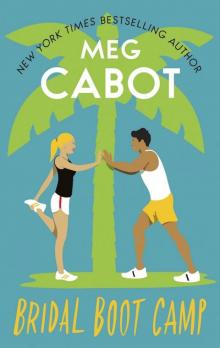 Bridal Boot Camp
Bridal Boot Camp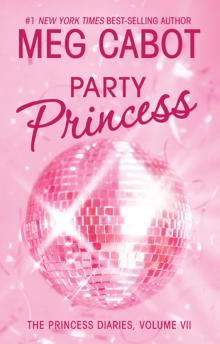 Party Princess
Party Princess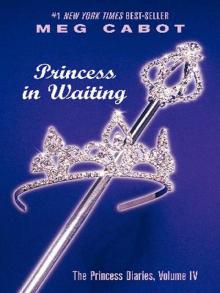 Princess in Waiting
Princess in Waiting Being Nikki
Being Nikki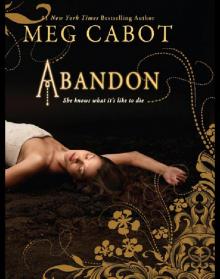 Abandon
Abandon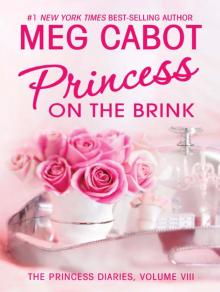 Princess on the Brink
Princess on the Brink Darkest Hour
Darkest Hour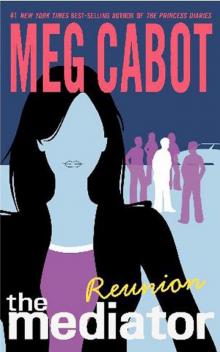 Reunion
Reunion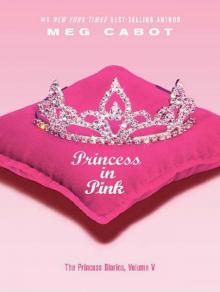 Princess in Pink
Princess in Pink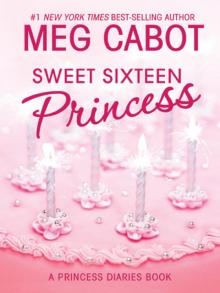 Sweet Sixteen Princess
Sweet Sixteen Princess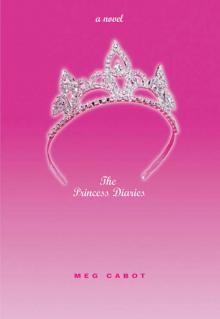 The Princess Diaries
The Princess Diaries Airhead
Airhead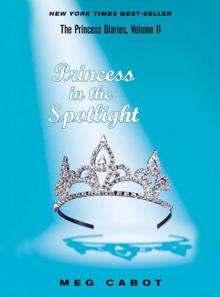 Princess in the Spotlight
Princess in the Spotlight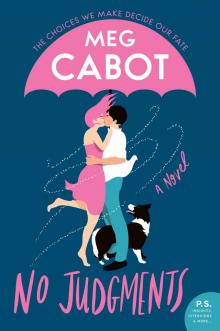 No Judgments
No Judgments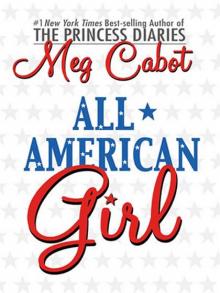 All-American Girl
All-American Girl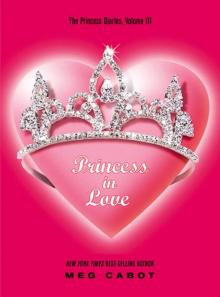 Princess in Love
Princess in Love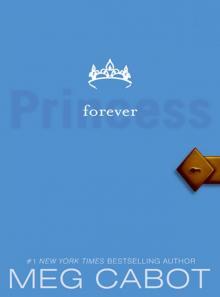 Forever Princess
Forever Princess Haunted
Haunted Shadowland
Shadowland Twilight
Twilight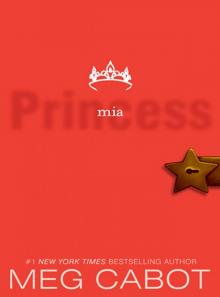 Princess Mia
Princess Mia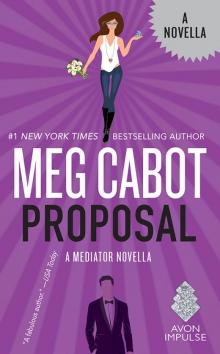 Proposal
Proposal Remembrance
Remembrance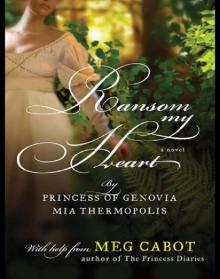 Ransom My Heart
Ransom My Heart Underworld
Underworld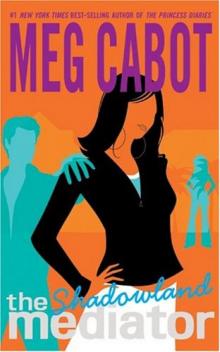 Shadowland tm-1
Shadowland tm-1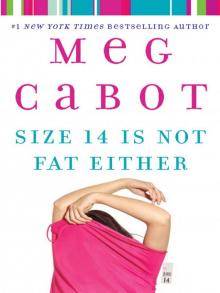 Size 14 Is Not Fat Either
Size 14 Is Not Fat Either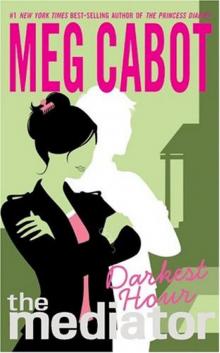 Darkest Hour tm-4
Darkest Hour tm-4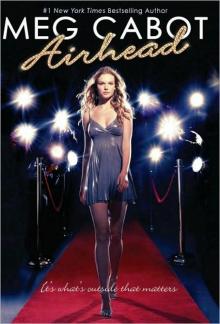 Airhead a-1
Airhead a-1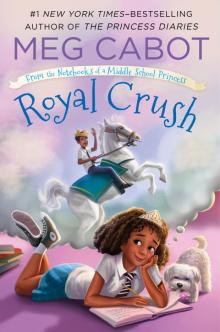 Royal Crush
Royal Crush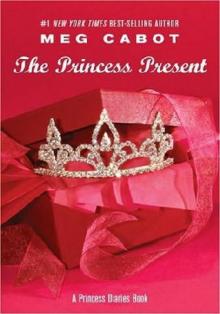 The Princess Present (princess diaries)
The Princess Present (princess diaries)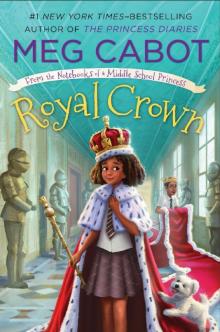 Royal Crown
Royal Crown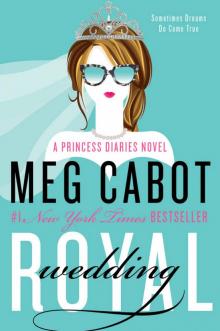 Royal Wedding: A Princess Diaries Novel (The Princess Diaries Book 11)
Royal Wedding: A Princess Diaries Novel (The Princess Diaries Book 11)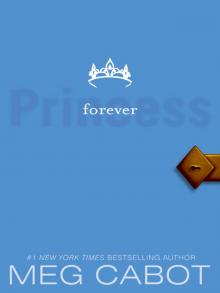 Princess Diaries, Vol. X: Forever Princess
Princess Diaries, Vol. X: Forever Princess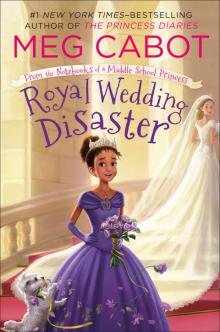 Royal Wedding Disaster
Royal Wedding Disaster Allie Finkle's Rules for Girls: Glitter Girls and the Great Fake Out
Allie Finkle's Rules for Girls: Glitter Girls and the Great Fake Out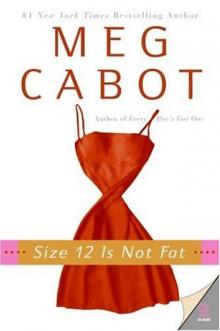 Size 12 Is Not Fat hwm-1
Size 12 Is Not Fat hwm-1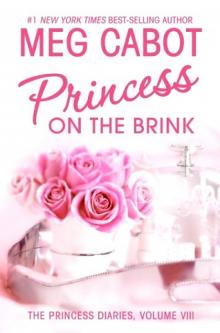 Princess on the Brink pd-8
Princess on the Brink pd-8 The New Girl
The New Girl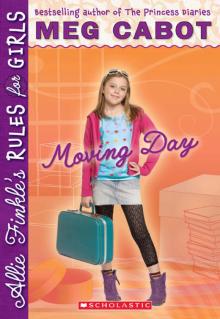 Allie Finkle's Rules for Girls: Moving Day
Allie Finkle's Rules for Girls: Moving Day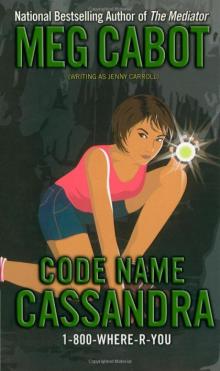 Code Name Cassandra
Code Name Cassandra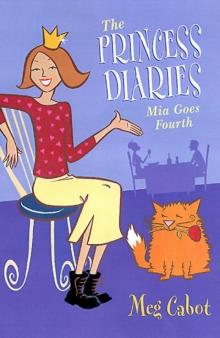 Mia Goes Fourth pd-4
Mia Goes Fourth pd-4 Sanctuary 1-4
Sanctuary 1-4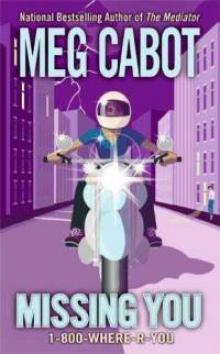 Missing You 1-5
Missing You 1-5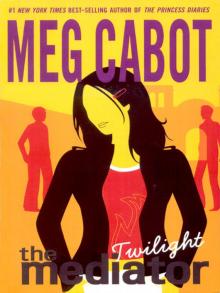 The Mediator 6: Twilight
The Mediator 6: Twilight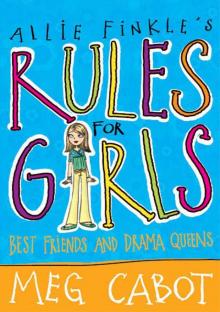 Allie Finkle's Rules for Girls: Best Friends and Drama Queens
Allie Finkle's Rules for Girls: Best Friends and Drama Queens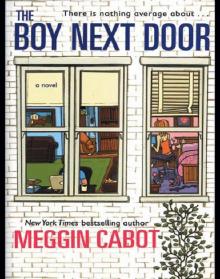 The Boy Next Door
The Boy Next Door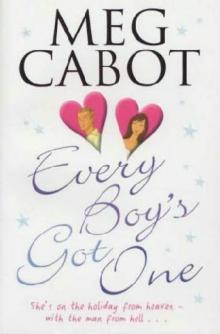 Every Boy's Got One
Every Boy's Got One Princess Mia pd-9
Princess Mia pd-9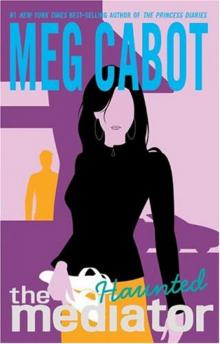 Haunted tm-5
Haunted tm-5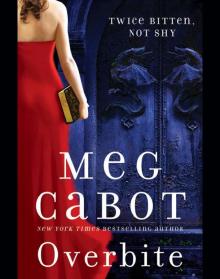 Overbite
Overbite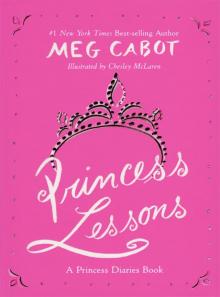 Princess Lessons
Princess Lessons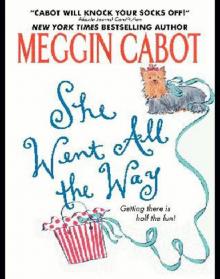 She Went All the Way
She Went All the Way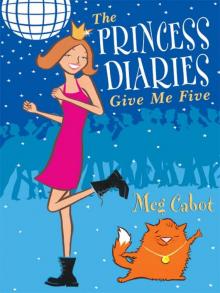 Give Me Five pd-5
Give Me Five pd-5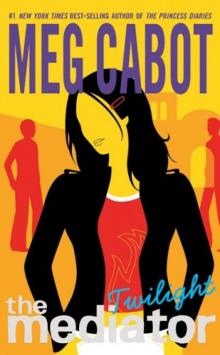 Twilight tm-6
Twilight tm-6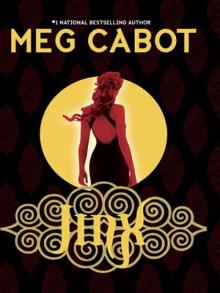 Jinx
Jinx Runaway (Airhead #3)
Runaway (Airhead #3)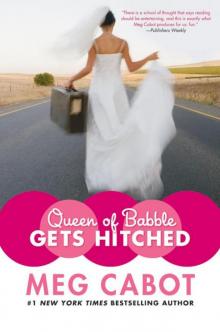 Queen of Babble Gets Hitched qob-3
Queen of Babble Gets Hitched qob-3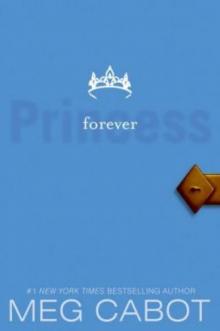 Forever Princess pd-10
Forever Princess pd-10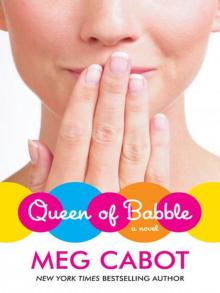 Queen of Babble
Queen of Babble Boy Meets Girl b-3
Boy Meets Girl b-3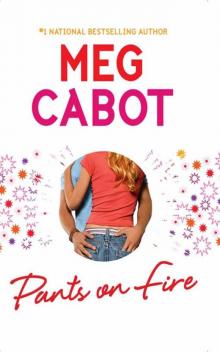 Pants on Fire
Pants on Fire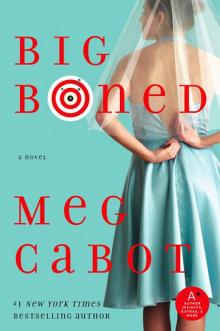 Big Boned ху-3
Big Boned ху-3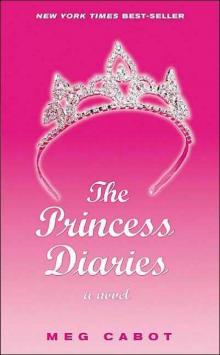 Princess' Diaries pd-1
Princess' Diaries pd-1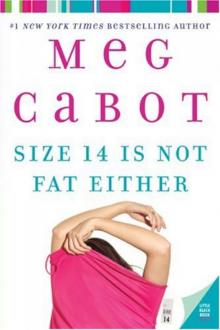 Size 14 Is Not Fat Either hwm-2
Size 14 Is Not Fat Either hwm-2 Awaken a-3
Awaken a-3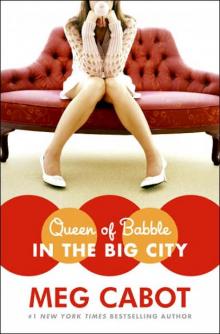 Queen Of Babble: In The Big City qob-2
Queen Of Babble: In The Big City qob-2 Nicola and the Viscount
Nicola and the Viscount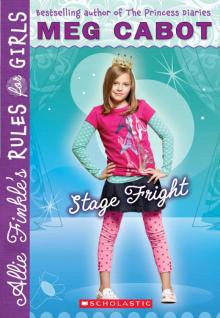 Allie Finkle's Rules for Girls: Stage Fright
Allie Finkle's Rules for Girls: Stage Fright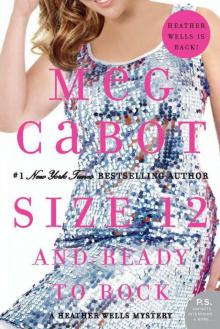 Size 12 and Ready to Rock
Size 12 and Ready to Rock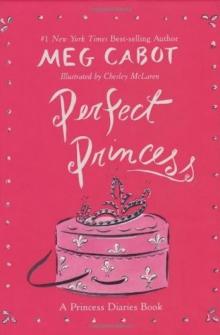 Perfect Princess
Perfect Princess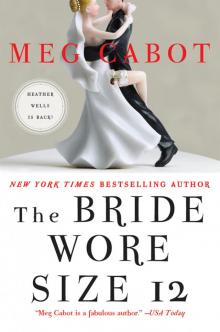 The Bride Wore Size 12
The Bride Wore Size 12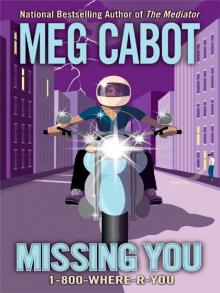 1-800-Where-R-You: Missing You
1-800-Where-R-You: Missing You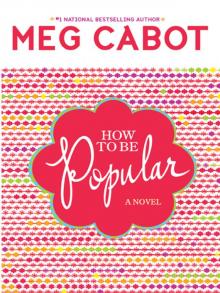 How to Be Popular
How to Be Popular Queen of Babble Bundle with Bonus Material
Queen of Babble Bundle with Bonus Material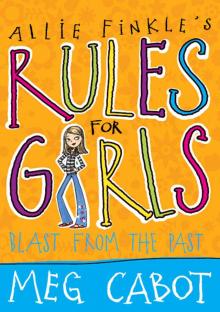 Allie Finkle's Rules for Girls: Blast from the Past
Allie Finkle's Rules for Girls: Blast from the Past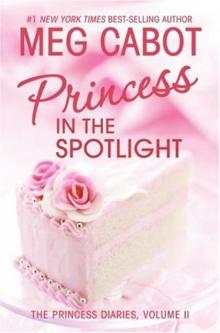 Princess in the Spotlight pd-2
Princess in the Spotlight pd-2 Ready or Not
Ready or Not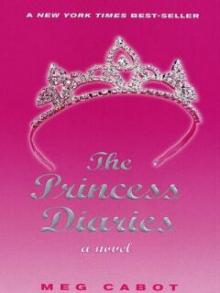 The Princess Diaries I
The Princess Diaries I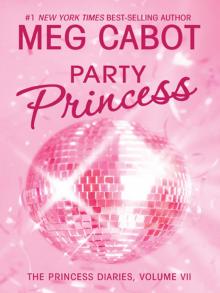 Party Princess pd-7
Party Princess pd-7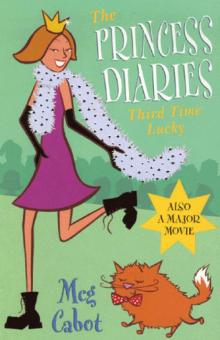 Third Time Lucky pd-3
Third Time Lucky pd-3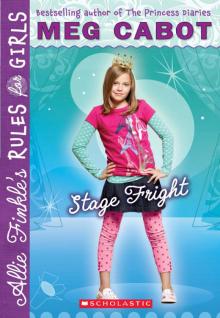 Stage Fright
Stage Fright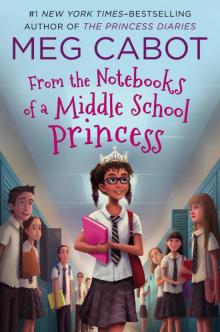 From the Notebooks of a Middle School Princess
From the Notebooks of a Middle School Princess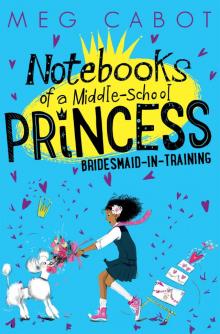 Notebooks of a Middle-School Princess Bridesmaid-in-Training
Notebooks of a Middle-School Princess Bridesmaid-in-Training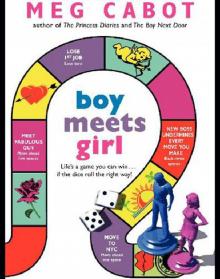 Boy Meets Girl
Boy Meets Girl Missing You
Missing You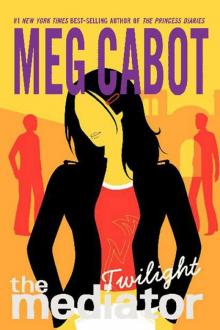 The Twilight
The Twilight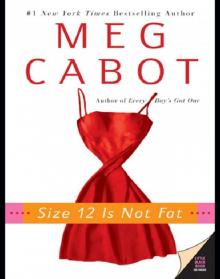 Size 12 Is Not Fat
Size 12 Is Not Fat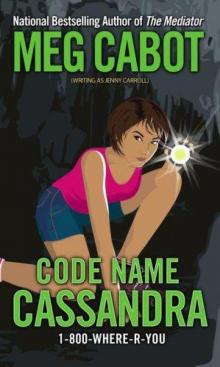 Code Name Cassandra 1-2
Code Name Cassandra 1-2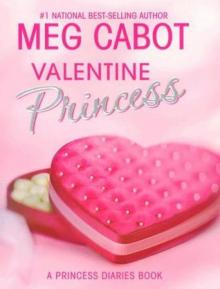 Valentine Princess
Valentine Princess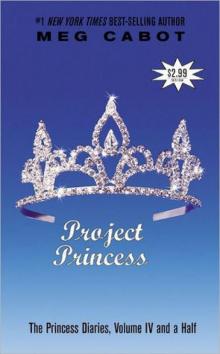 Project Princess
Project Princess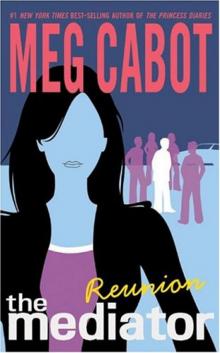 Reunion tm-3
Reunion tm-3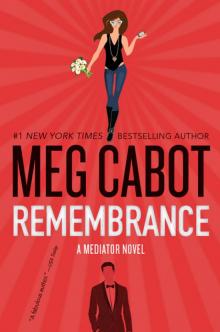 Remembrance: A Mediator Novel
Remembrance: A Mediator Novel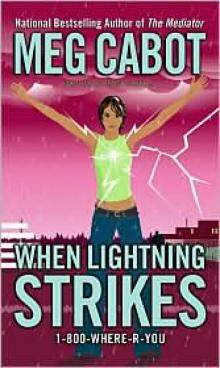 When Lightning Strikes 1-1
When Lightning Strikes 1-1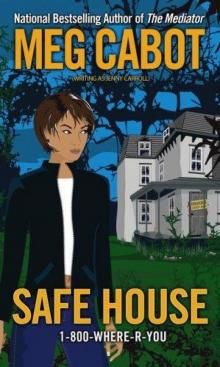 Safe House 1-3
Safe House 1-3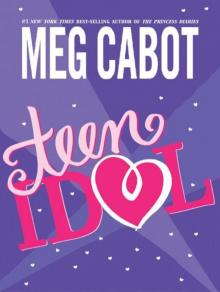 Teen Idol
Teen Idol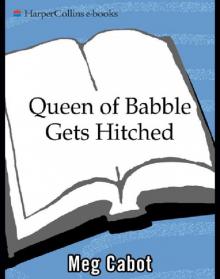 Queen of Babble Gets Hitched
Queen of Babble Gets Hitched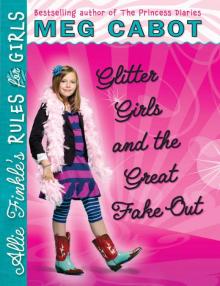 Glitter Girls and the Great Fake Out
Glitter Girls and the Great Fake Out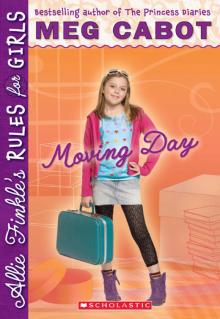 Moving Day
Moving Day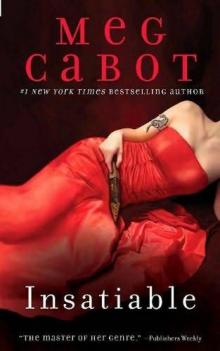 Insatiable
Insatiable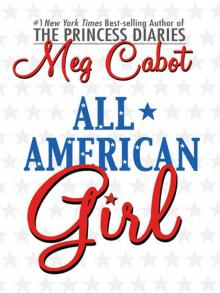 All American Girl
All American Girl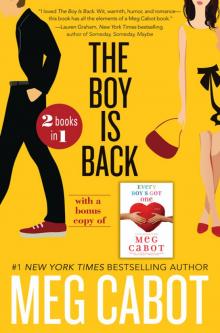 The Boy Is Back + Every Boy's Got One Bundle
The Boy Is Back + Every Boy's Got One Bundle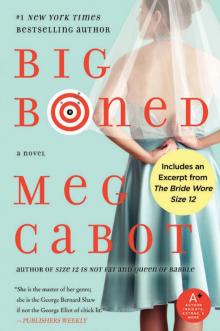 Big Boned
Big Boned Awaken
Awaken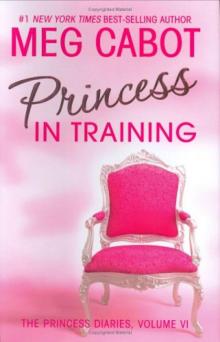 Princess in Training pd-6
Princess in Training pd-6